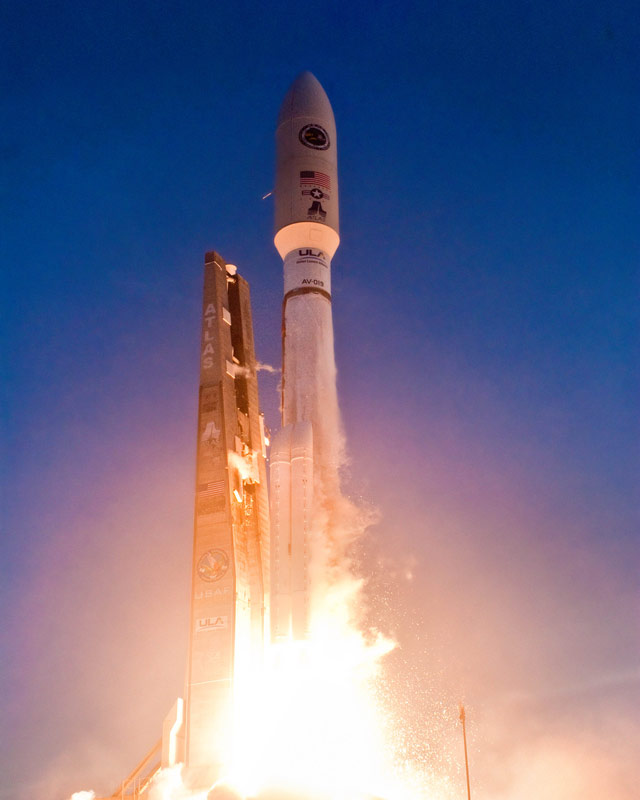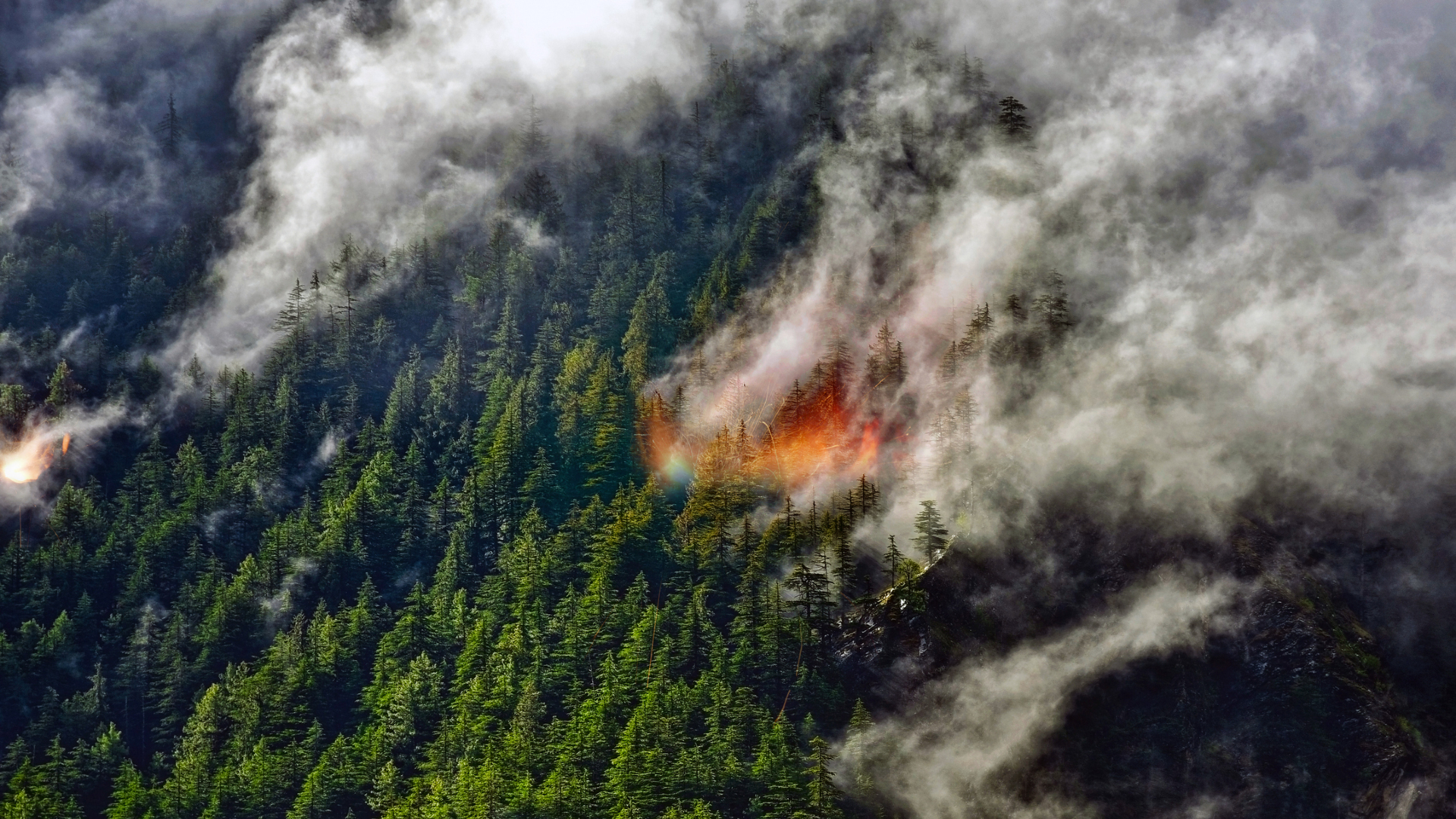U.S. Space Security Strategy Will Likely Have Military Focus

The official strategy for protecting the nation's space assets, dueto be released soon, will probably focus on security from a primarily military perspective, experts say.
The Obama administration is expected to announce its National Security Space Strategy in the next week or so. The NSSS spells out how the Department of Defense and the Office of the Director of National Intelligence will carry out the country's National Space Policy, which the president issued last June.
The strategy will likely view the problem of space security through a military prism, according to experts. And while the NSSS — like the National Space Policy — is likely to stress international cooperation in several fields, it will probably be vague about how to make such cooperation happen.
"The NSSS will likely focus on space security from a focused military perspective, which is necessary but not sufficient for a space arena populated with more, and more diverse, players with interests of their own," said Joan Johnson-Freese, a space policy analyst at the Naval War College in Newport, R.I.
Safeguarding U.S. space assets
The NSSS will address how to safeguard U.S. space assets, such as communications and military satellites, which are vital to national interests.
These satellites could conceivably be lost to a number of threats. One is hostile action — foes may try to blow them up with missiles, or jam their signals electronically. Another threat is the huge cloud of orbiting space junk that cocoons the Earth.
Breaking space news, the latest updates on rocket launches, skywatching events and more!
"There's a higher probability that you're going to get hit by a piece of debris than a satellite's going to get destroyed by an adversary," said Brian Weeden, a technical adviser for the Secure World Foundation, an organization dedicated to the sustainable use of space. [How Much Junk Is in Space?]
Protecting U.S. space assets from these and other threats will be the main priority of the NSSS, and it will likely lay out several different strategies for doing so, Weeden said.
Deterrence by several means
While the NSSS may have a military focus, it will likely try to deter hostile action by primarily soft-power means, Weeden said. That's partially because the threat of mutually assured satellite destruction is a bad move for the U.S., which is more dependent on space assets than anybody else.
"No one else really has anything in space that the U.S. can hold at risk," Weeden told SPACE.com.
The NSSS may also suggest ways to make U.S. space assets less vulnerable. For example, it may call for a change in the design of satellite constellations, Weeden said.
Most U.S. satellite constellations have just a few large, expensive satellites. These present high-value targets for adversaries, and they're relatively easy to hit. So, from a security standpoint, it might be smart to shift to a new strategy — launching a greater number of smaller and cheaper satellites, Weeden said.
"There's much less value in taking out one of those satellites," he said. "Plus, it's harder to take out the entire constellation."
International cooperation
The NSSS is expected to call for greater cooperation with international partners, according to experts. Part of the reasoning is likely financial, Weeden noted: Satellites are expensive, so spreading the costs around is an attractive prospect in these tough economic times.
But cooperation on satellite projects could also be a deterrent to hostile actors, Weeden said, since there are more stakeholders involved.
"Let's say a satellite is being used by the U.S. military, and by Europeans, and by Japan," Weeden said. "If someone wants to attack that satellite, they have to take into account an act of war against all those countries."
The NSSS will also likely call for improved space situational awareness capabilities — a better ability to monitor space debris and space weather, both of which can harm satellites. And international cooperation would be useful in these arenas, too, Weeden added.
"Can the U.S. afford to go out and build a whole bunch of new sensors around the world?" Weeden said. "Probably not, given our current economic situation."
Who will lead?
Such areas of cooperation may be an important part of the NSSS, but the document will most likely not spell out in detail how such cooperation will work in practice, experts say. If that's the case, it would be a shame, according to Johnson-Freese.
"If it doesn't lay out specifics for cooperation and mechanisms for protecting space as a sustainable environment, it will be a missed opportunity," she told SPACE.com in an e-mail interview. "Other countries will establish practices — good and bad — with or without U.S. leadership."
The NSSS also is expected to not call for limits on weapons in space, experts said. Some view this as a potential oversight, and a failure of leadership.
"Agreed-upon limits on weapons in space and interfering with satellites could strengthen stability and security in space and on the ground, and such limits should be part of the U.S. national security strategy," Laura Grego, a senior scientist with the Union of Concern Scientists' Global Security Program, said in a statement.
Weeden doesn't expect the NSSS to speak much about arms control, either.
"The U.S. position is still that there's no arms race in space," he said.
But it's probably too soon to start talking about banning or limiting weapons in space, anyway, Weeden added. There are still no firm, internationally accepted guidelines about what constitutes responsible behavior in space, so arms-control talks would likely be premature at this point.
"I would see the establishment of norms which are accepted by all the space actors as the first step in working toward a treaty," Weeden said.

Michael Wall is a Senior Space Writer with Space.com and joined the team in 2010. He primarily covers exoplanets, spaceflight and military space, but has been known to dabble in the space art beat. His book about the search for alien life, "Out There," was published on Nov. 13, 2018. Before becoming a science writer, Michael worked as a herpetologist and wildlife biologist. He has a Ph.D. in evolutionary biology from the University of Sydney, Australia, a bachelor's degree from the University of Arizona, and a graduate certificate in science writing from the University of California, Santa Cruz. To find out what his latest project is, you can follow Michael on Twitter.
